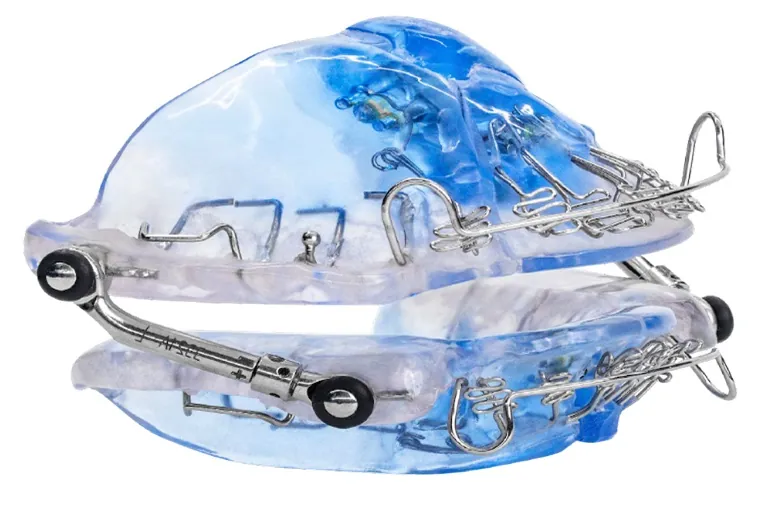Stress is a part of many people’s lives. It affects how we feel, think, and even how we sleep. But did you know there’s a link between stress and sleep apnea?
Sleep apnea is a condition where breathing stops and starts during sleep. Many things can cause it, and stress is a key factor. When people are stressed, they can not breathe well while sleeping.
This can lead to sleep apnea or make it worse. So, let’s dive deeper into the connection between stress and sleep apnea.
The Link Between Stress And Sleep Apnea
Stress As A Trigger
Stress affects many parts of our lives. One of these is our sleep. High levels of stress make it harder for us to sleep. This is because our body is on high alert. It’s ready to react to danger.
Stress also plays a role in sleep apnea. Sleep apnea is when you stop breathing for short times during sleep. People with more stress often have more sleep apnea episodes. This is because stress changes how our body works during sleep.
How Stress Affects Breathing
Our body has a natural rhythm of breathing. Stress changes this rhythm. When we are stressed, our breathing becomes shallow and fast. This means we take in less air.
Less air can lead to sleep apnea. This is because our body needs a certain amount of air to breathe. Not getting enough air makes our throat muscles relax too much. This causes our airways to close.
Stress-Induced Sleep Disruptions
Stress doesn’t just cause sleep apnea. It also disrupts our sleep in other ways. Our body releases a hormone called cortisol when stressed. High levels of cortisol make it hard to fall asleep.
This hormone also wakes us up in the middle of the night. So, people under stress wake up often. They also find it hard to get back to sleep. Over time, this lack of sleep harms our health. It also makes stress and sleep apnea worse.
Impact On Health And Well-being
Consequences Of Untreated Sleep Apnea
Sleep apnea is serious. People who don’t treat it face many health problems. High blood pressure is one of these problems. The heart must work harder because the body gets less oxygen during sleep. This can lead to heart attacks.
People with untreated sleep apnea also face memory problems. This is because the brain doesn’t get enough rest. They often feel tired during the day. This tiredness makes it hard to focus on tasks.
Stress-Related Health Complications
Stress is terrible for our health. It leads to many health issues. One problem is headaches. People feel pain in their heads because their muscles tighten.
Another issue is stomach problems. The body produces more acid, so people feel pain in their stomachs.
High stress also harms the heart. The heart beats faster. This can cause heart disease over time. Stress also affects our immune system. People get sick more often because their bodies can’t fight off germs.
Quality Of Life And Sleep Apnea
Sleep apnea affects how we live. People feel tired all the time. They need help to do everyday tasks. It takes a lot of work to focus at work or school. This affects their performance.
It also affects relationships. People become irritable. They snap at loved ones more often. Over time, this can strain relationships. Sleep apnea also makes it hard to enjoy hobbies. People need more energy to do things they love.
Managing Stress To Improve Sleep Apnea
Stress Reduction Strategies
Reducing stress is essential for health. Deep breathing is a good way to start. Taking deep breaths calms the mind and body. Another strategy is regular exercise. Exercise helps the body release stress. It makes people feel relaxed and happy.
Listening to calming music is also helpful. It soothes the mind. Reading a book or taking a warm bath can also help. These activities take the mind off worries and help people relax.
Lifestyle Modifications
Changing daily habits helps sleep apnea. Eating healthy food is one change. Foods like fruits, vegetables, and whole grains are good. They give the body energy and make people feel better.
Avoiding caffeine before bed is also smart. It keeps people awake and harms sleep.
Drinking less alcohol helps, too. Alcohol relaxes throat muscles and can cause sleep apnea. People should also avoid smoking. Smoking damages the airways and makes breathing hard.
Therapies And Interventions
Some people need extra help. They see professionals for therapy. Cognitive-behavioral therapy is one type. It helps change negative thoughts and behaviors. Over time, people feel less stress.
Another option is joining a support group. Talking with others who have sleep apnea helps. People share tips and feel less alone.
There are also medical devices and oral medical devices that help the patient. These devices allow people to breathe better during sleep.
Sleep Apnea Treatment Options
Common Treatment Options
There are many ways to make sleep better. Doctors can suggest ways to keep air moving smoothly for sleep apnea, such as oral medical devices and/or PAP machines, so you breathe better at night.
Surgical Interventions
Some people need surgery. Doctors will remove extra tissue from the throat. This opens the airway. There are different types of surgeries.
One is called UPPP. Doctors remove tonsils, uvula, and part of the soft palate. Another type is jaw surgery. It moves the jaw forward to open the airway.
FAQs
1. Can Reducing Stress Help Sleep Apnea?
Yes, reducing stress can help sleep apnea. Lower stress levels often improve sleep quality, potentially reducing sleep apnea symptoms.
2. Can Anxiety Or Stress Cause Sleep Apnea?
Stress and anxiety don’t directly cause sleep apnea. However, they can worsen breathing problems during sleep, increasing apnea risk.
3. Is Sleep Apnea Worse When You Are Stressed?
Yes, stress can exacerbate sleep apnea symptoms. When stressed, disrupted sleep patterns can make apnea events more frequent.
Conclusion
In wrapping up, the connection between stress and sleep apnea is clear. Both can influence each other in various ways. When stressed, our sleep is disrupted, leading to or worsening sleep apnea.
On the other hand, having sleep apnea can increase our stress levels because of poor sleep quality.
It’s a cycle that can impact our overall well-being. So, addressing one can help the other. By understanding and managing our stress, we can improve our sleep and reduce the risks of sleep apnea.
Remember, taking care of our mental health will also benefit our physical health. Let’s prioritize both for a healthier, happier life.

